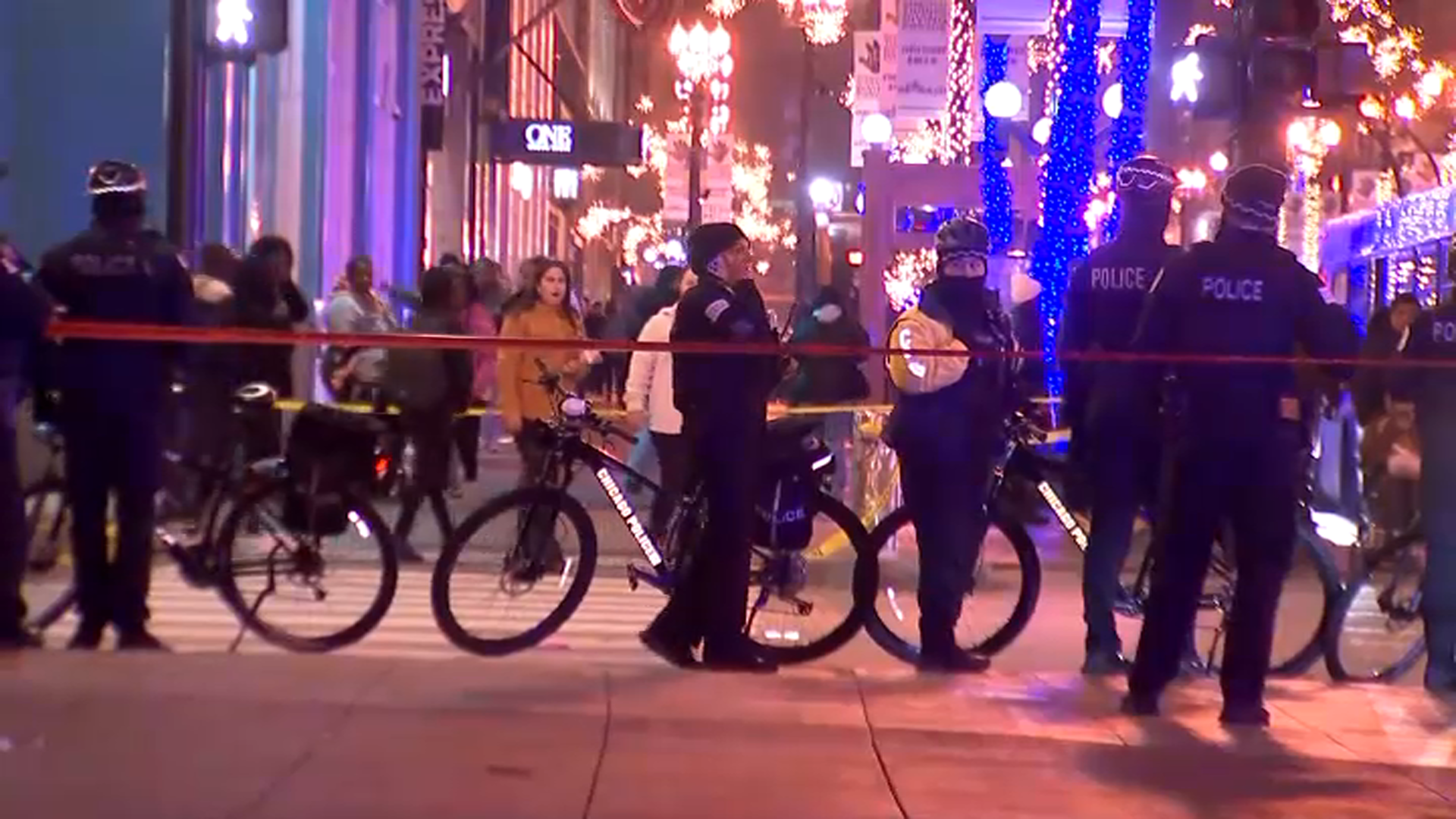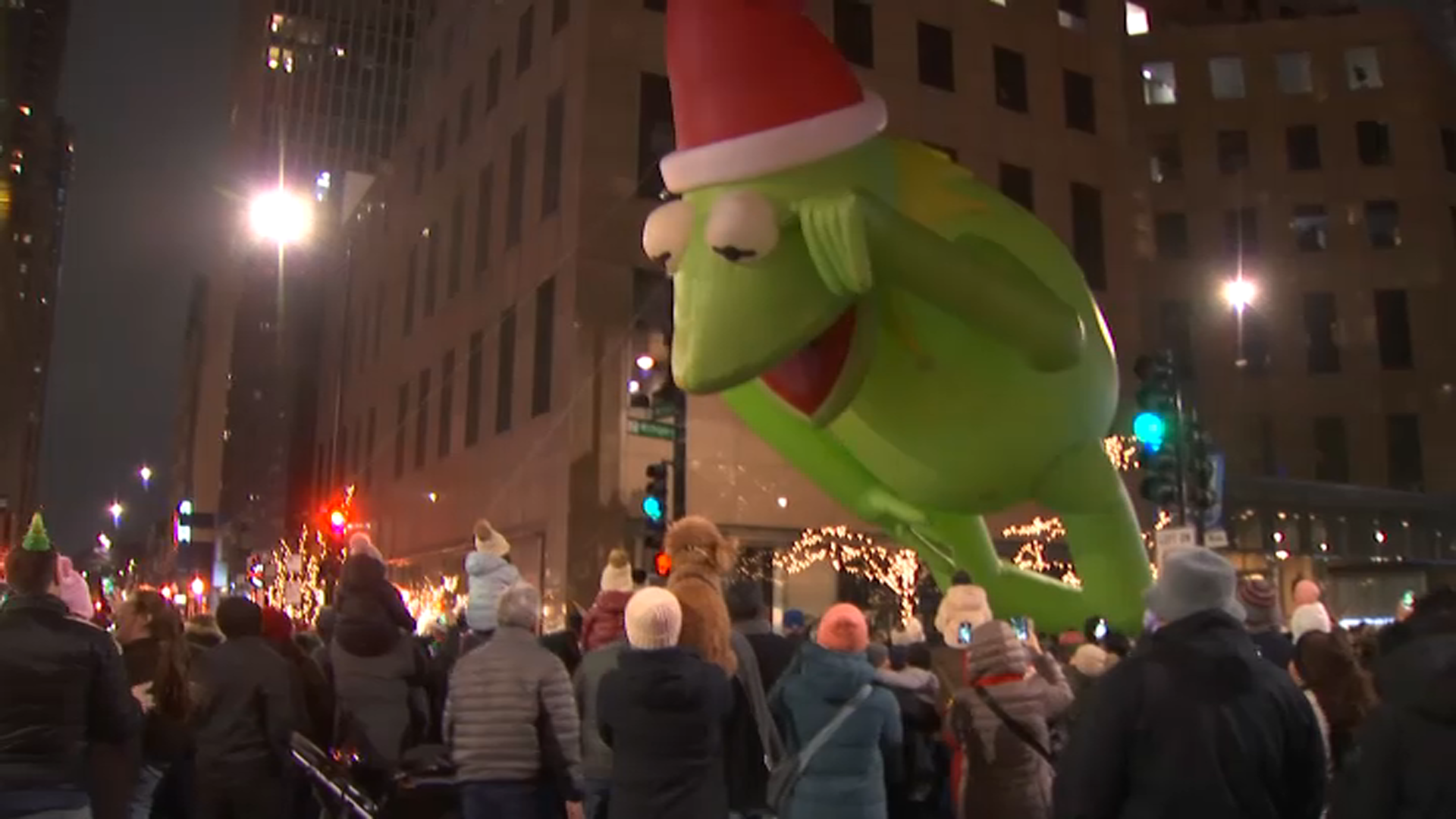The omicron variant has now been detected in several states across the U.S., and the first Midwest case has been reported in Minnesota.
While the variant hasn't yet been detected in Illinois, the state reported 11,524 new, confirmed and probable cases of COVID Thursday -- the most its seen n a single day since Dec. 1, 2020, when 12,542 new cases of the virus were reported.
Plus, Gov. Pritzker discusses Illinois indoor mask mandate.
Here's what you need to know about the coronavirus pandemic across Illinois today:
As Omicron Variant is Confirmed in 5 US States, Illinois Reports More Than 11K New COVID Cases
As the omicron COVID variant continues to pop-up across the country with 5 states confirming identified cases, Illinois nearly set a record Thursday — reporting more than 11,000 new confirmed and probable COVID cases.
According to the Illinois Department of Public Health’s COVID data tracker, the state reported 11,524 new, confirmed and probable cases of COVID Thursday.
Local
That's an increase from just over 6,000 cases reported the day prior — and the most the state had seen in a single day since Dec. 1, 2020, when 12,542 new cases of the virus were reported.
An IDPH spokesperson says that the new case numbers could potentially be linked to holiday gatherings and travel.
Feeling out of the loop? We'll catch you up on the Chicago news you need to know. Sign up for the weekly Chicago Catch-Up newsletter.
“Thanksgiving was one week ago, and we are starting to see cases associated with family gatherings and travel.”
In the last 24 hours, the state also reported a staggering 231,876 new tests results from laboratories, the most ever entered into the data portal in a single day.
The more than 231,000 new test results smashed the single-day record, which had been set on Sept. 30 when 180,411 results were returned from state laboratories.
Read more here.
These are the US States Where the Omicron COVID Variant Has Been Confirmed
So far, the omicron variant has been detected in several states across the country.
Here are the states that have reported confirmed cases as of Dec. 3, 2021., from New York to Hawaii.
Read more here.
Breakdown: These Are the COVID Variants Currently in Illinois, According to IDPH
Though health officials have not confirmed the presence of omicron in Illinois yet, a variety of other COVID-19 variants make up the thousands of cases statewide.
According to the latest data from the Illinois Department of Public Health, a total of 30,274 coronavirus cases are active across the state from the alpha, beta, delta and gamma variants.
Here's a breakdown, as of Wednesday. Dec. 1.
Where Does Illinois' Mask Mandate Stand as Midwest Detects First Omicron COVID Variant? Here's What Pritzker Says
The latest Illinois COVID-19 guidance requires that all residents where a face covering while inside public places, and Gov. J.B. Pritzker said he doesn't see that changing given the most recent metrics.
"We have an indoor mask requirement in the state of Illinois and so we're not lifting that, especially now," Pritzker said. "When I want to lift [the mandate] is when we start seeing hospitalizations plunge, considering that's a particular problem."
According to data from the Illinois Department of Public Health, hospitalizations continue to increase, as well, with 2,536 people hospitalized with COVID as of Thursday. In the past day, 41 people have died from the virus.
Of the six states where mask mandates remain in effect - Hawaii, Illinois, Nevada, New Mexico, Oregon and Washington - Illinois is the only one east of the Mississippi River.
Read more here.
What a Cook County neurologist, says about 'long COVID'
From brain fog to migraines to even stroke-like symptoms, neurologists say they are seeing a number of longer-lasting neurological symptoms in patients diagnosed with COVID-19.
Dr. Lakshmi Warrior, chair of neurology at Cook County Health, told NBC 5 "there's a huge spectrum" of what doctors are seeing post-COVID infection.
"Some patients might have some mild symptoms from headaches to what we call brain fog where patients just don't feel like they're thinking as clearly or like back to normal with their thinking and then other patients have more severe symptoms, even stroke and significant nerve damage," she said. "So we're really seeing a pretty wide spectrum of things."
Warrior's comments echo findings from a study from the National Institutes of Health, which reported last year that while COVID is a respiratory disease, "patients often experience neurological problems including headaches, delirium, cognitive dysfunction, dizziness, fatigue, and loss of the sense of smell."
Read more here.
By the numbers: COVID metrics in Illinois' 11 health care regions
The state of Illinois is seeing increases in its case numbers and hospitalizations, and current data from the Department of Public Health suggests that there isn’t just one specific area of the state that is driving those surges.
In fact, several regions in the state are seeing COVID numbers that would have previously triggered additional COVID mitigations, including Region 1, located in the northwestern corner of the state. There, the positivity rate has risen to 9.3% in recent days, the highest number in the state, and the availability of ICU beds has remained under the 20% threshold for 29 consecutive days, currently sitting at 14%, according to IDPH data.
Under previous IDPH rules, any region with positivity rates in excess of 8%, ICU bed availability below 20%, or increasing hospitalizations would have been subjected to more stringent mitigation rules.
Region 6, located in the eastern portion of the state and including Champaign County, is approaching the 8% threshold for positivity rates, sitting at 7.5%. They’ve also seen recent decreases in ICU bed availability and rapid increases in COVID hospitalizations over the last month, according to IDPH data.
Read more here.
Biden's winter COVID plan includes free at-home testing and stricter travel rules
At the federal level, President Joe Biden unveiled a new winter plan to combat coronavirus, aiming to require health insurers to reimburse customers for the cost of at-home COVID tests and extending the mask mandate on public transportation through at least mid-March.
Beginning next week, the Biden administration announced that all international travelers will be required to test negative for COVID-19 within 24 hours of their departure for the United States.
“We will fight with science…not chaos and confusion,” he said.
The administration also announced additional steps to encourage families to get COVID vaccines and boosters together, and to expand testing capabilities as cases increase around the country.
Read more here.
Should you get a COVID booster shot now or after Omicron is detected in Illinois?
Chicago's top doctor weighed in on whether patients should receive their booster shot before or after new cases are detected in the state.
"I want people to get a booster now," said Chicago Department of Public Health Commissioner Dr. Allison Arwady. "Why do I want people to get a booster now? Because right now -- forget omicron -- delta [variant] is doing a job on Chicago and on the upper Midwest."
In a Facebook live event Tuesday, Arwady said that, though she can't predict what the future holds as for the spread of omicron, but she has seen that it's better to take early action than wait for a worse case scenario.
She explained that COVID vaccines should provide "some level of protection" from omicron, but booster shots would add additional support.
"I don't want people to think 'oh my god, vaccines aren't working now.' That's not what we're saying here," Arwady said. "But we're saying that with this potential new variant, we could be seeing some more breakthroughs and we could be seeing some more people getting COVID again, even if, you know, even if they had COVID in the past."
"Clearly right now, getting your first and second dose is the most important thing -- the most important thing," she said.
Read more here.
Delta vs. Omicron Variant Symptoms: How New COVID Variant Might Differ From Previous Cases
While scientists and experts are still working to find answers to many unanswered questions surrounding the new omicron COVID variant, some doctors in South Africa who have treated cases said the symptoms appear to differ from what many have come to expect with the delta variant.
As the emergence of the new COVID variant omicron begins to restrict U.S. travel and raises global concerns due to its increased risk of reinfection, scientists and doctors are working to collect data around how and why this variant behaves differently than others.
So what are the symptoms of the new omicron COVID variant and the delta COVID variant?
Though health experts have said it will take weeks to understand how the variant may affect diagnostics, therapeutics and vaccines, here's what we know so far.
Omicron: What Is the Difference Between ‘Variant of Interest' Vs. ‘Variant of Concern?'
As the World Health Organization announces that omircon has been classified as a "variant of concern," many are asking about the difference between this categorization and a "variant of interest."
WHO Health Emergencies Programme COVID-19 Technical Lead Dr. Maria Van Kerkhove said early evidence on omicron, known by the technical term B.1.1.529, shows that the variant has a large number of mutations, some of which have concerning characteristics.
Omicron has also shown to have an increased risk of reinfection compared to other highly transmissible variants, indicating that people who contracted COVID and recovered could be more subject to catching it again with this variant.
Read more here.



